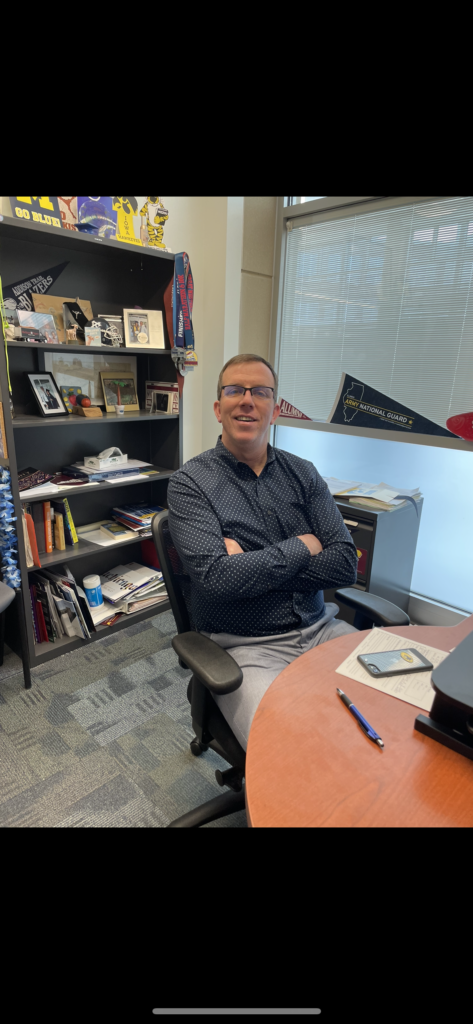As college decision season and the future approaches for the Class of 2022, current AT juniors face the impending college application process. The guidance department shares advice on college visits, standardized testing, and everything a college-bound Blazer should be doing in March of their junior year.
Guidance Counselor Shane Cole encourages juniors to attend college visits with a parent or legal guardian, whether it be virtual or in-person. “Visits or virtual visits. When they visit somewhere, they should be taking their parents with them because it’s a monetary investment by your parents,” said Cole.
Beyond visits, Cole recommends students research the schools on their lists, the programs which interest them, and life beyond high school that is disclusive of college: two-year colleges, four-year colleges, trade schools, gap years, the workforce, and everything in between. What works for one student may not work for another, but it is crucial a student independently thoroughly researches all options in their vision.
“Some of our parents don’t know; they say just go to COD, which is a great option for a lot of kids, and I don’t want to say anything bad about it, but if you’re thinking about going into nursing, and you decide to go to COD for your first two years then say you’re gonna transfer to ISU in their nursing program, they don’t allow transfers.”
College is an expensive endeavor, and juniors should begin to think about price ranges, or what schools they can feasibly afford. How much is too much?
April is the prime time for standardized testing, the SAT and ACT. In the past two years, an increasing number of colleges have become test-optional. College admissions were universally considering test-optional admissions, but once the pandemic hit, students found difficulty in finding tests, and thus began the reign of test-optional admissions.
Cole offers advice on whether to choose test-optional admissions and preparation in both scenarios.
“If you’re not a good standardized test taker, and you’ll know based upon your MAPS scores, based upon your PSAT scores, if you don’t know those, you can look those up. See where you are test-wise. If you know you’re a good or decent test taker, work on your test taking skills. If you know you’re not a good test taker, prepare for it, but don’t overprep for it.”
First semester seniors often spend the majority of their college admissions process writing multiple essays, and common advice begs juniors to start early before it is 11:28pm on the night an application is due, and the essays are only half completed.
Now is an ideal time to begin thinking about essay topics and corresponding responses, but March is much too early to start the writing process.
“We don’t know what the prompts are, so I don’t know if essays should be written right now, but people can start to have an understanding of this is kind of the story I wanted to tell,” advises Cole.
Various essay topics may ask students to write about a difficult circumstance and how they overcame the circumstance, a difficult decision and its corresponding outcome, a community they belong to, a time they’ve demonstrated resilience, the topics they are most passionate about (academic and non-academic), and their academic and career goals.
Cole offers ideas for students who may be struggling. “Did you maybe quit band because you wanted to go out for golf your senior year because it was gonna be fun but you really liked band. Did you try an art class your junior year even though you never liked art and really loved it?”
A college list should be solidified by the time applications are available. Cole recommends students apply to 5-6 schools although many students choose to apply to more. The list should consist of 2 saetieties, 2 target schools, and 1-2 reach schools, according to Cole.
Current seniors who have successfully completed the college application process add their insight and advice for current juniors.
Senior Maria Martinez suggests starting early and thinking about potential writers for a letter of recommendation. “I’d suggest beginning your research on potential schools now because it can be very overwhelming trying to narrow down your school list. I’d also suggest brainstorming college essay ideas to make it easier to write when the time comes. Also start thinking about teachers or staff that you have a good relationship with that could potentially write you a letter of recommendation,” said Martinez.
The guidance office is open to anyone with further questions.

